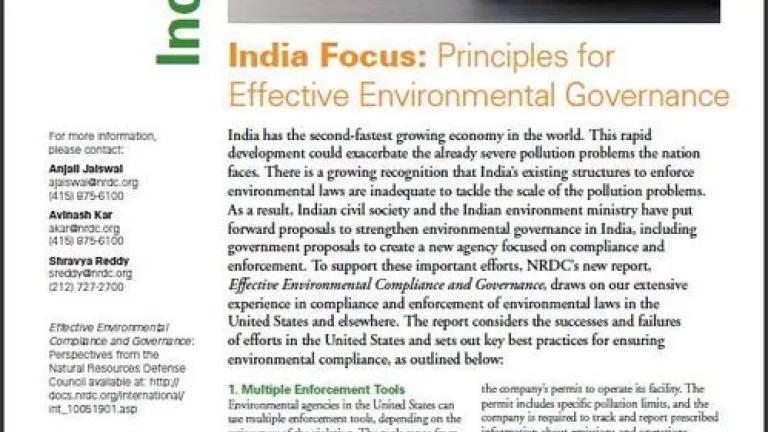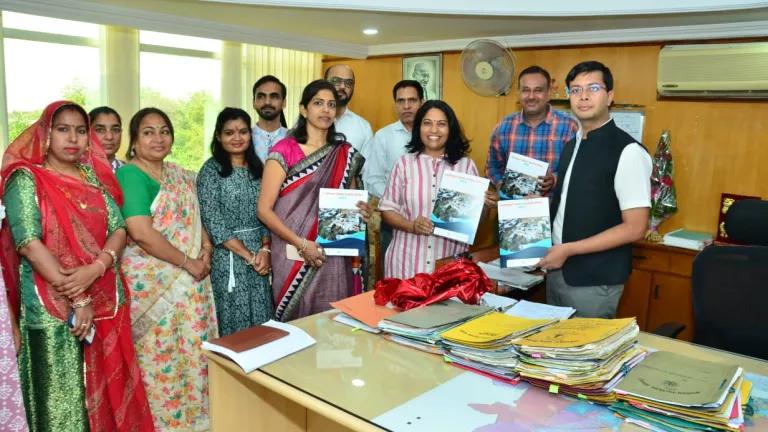
Pollution in India is a major fact of life. But, as the country marches forward economically, the Indian Government is turning its attention to the environmental problems it faces and knows it must address. One important area of activity has been a focus on strengthening environmental governance. Most recently, the government proposed the creation of a National Environment Assessment and Monitoring Authority (NEAMA) – an independent technical agency that would appraise projects, provide environmental clearances, conduct compliance monitoring, and initiate enforcement action – and has released a discussion paper for public comment. Just as a previous government proposal to form a new environmental regulatory body generated debate, this proposal too is generating public debate.
We are glad to see the government seek public input and to see civil society engaged on the issue. Open debate and meaningful public participation in the regulatory process are critical to the success and effectiveness of any regulatory body—including those like the NEAMA that are in the process of development. This is one of the central insights of NRDC’s recently released fact sheet on Principles for Effective Environmental Governance.
The fact sheet provides an overview of our detailed report report discussing the principles. The fact sheet and the report draw on NRDC’s extensive experience in compliance and enforcement of environmental laws in the United States and elsewhere.
Meaningful public participation is one of the eight key principles for effective governance covered by the factsheet and report. We also discuss these other principles for strengthening environmental compliance and governance:
- Multiple enforcement tools
- Self-monitoring and self-reporting
- Clarity in federal and state roles
- Citizen suits
- Highly qualified agency professionals
- Agency accountability
- Incentive and outreach programs
We are hopeful that the fact sheet and report can be useful tools to help inform the dialogue on and to help strengthen the proposed NEAMA and environmental governance overall in India.
Co-authored by Ashley Eagle-Gibbs.




